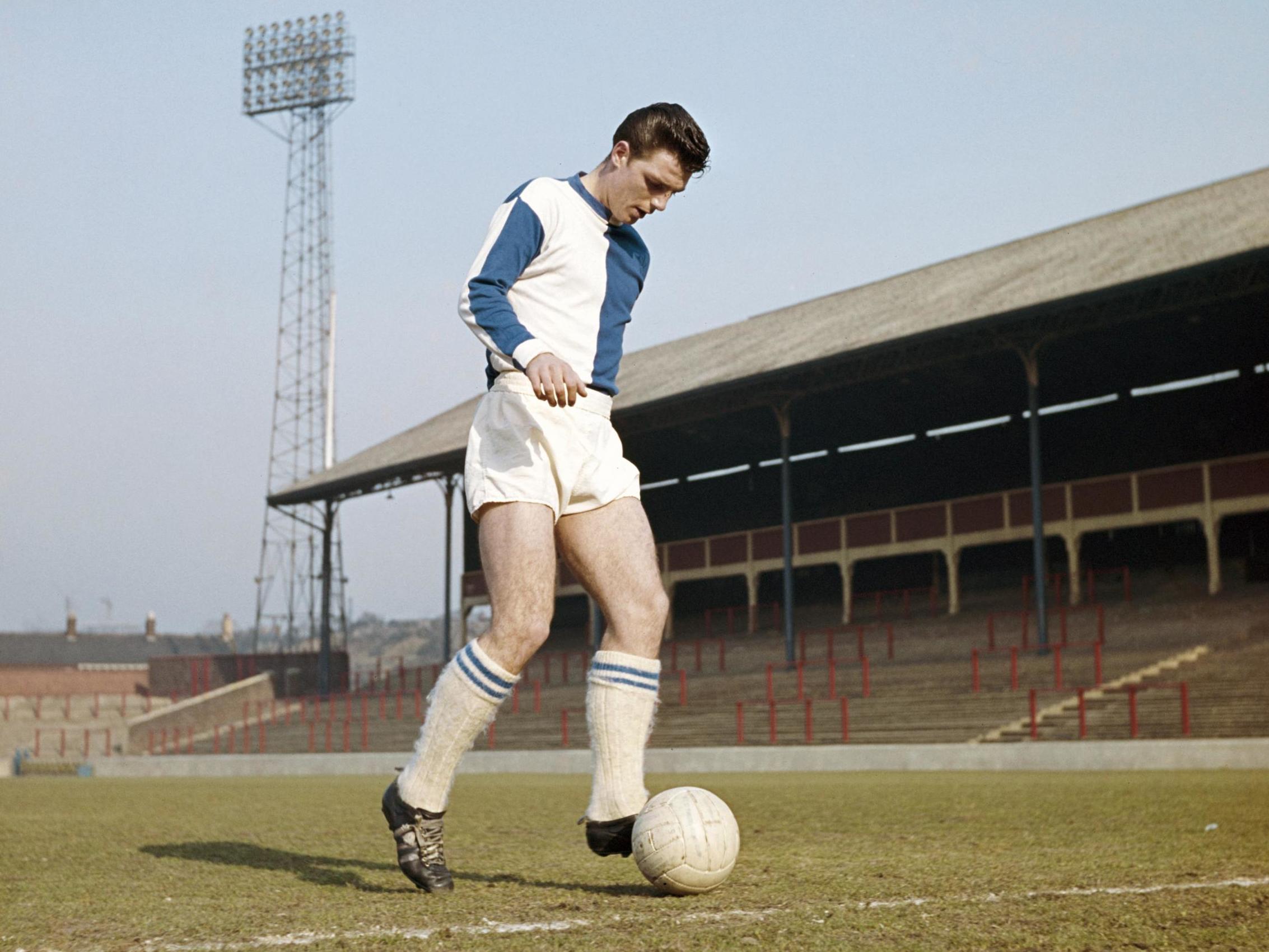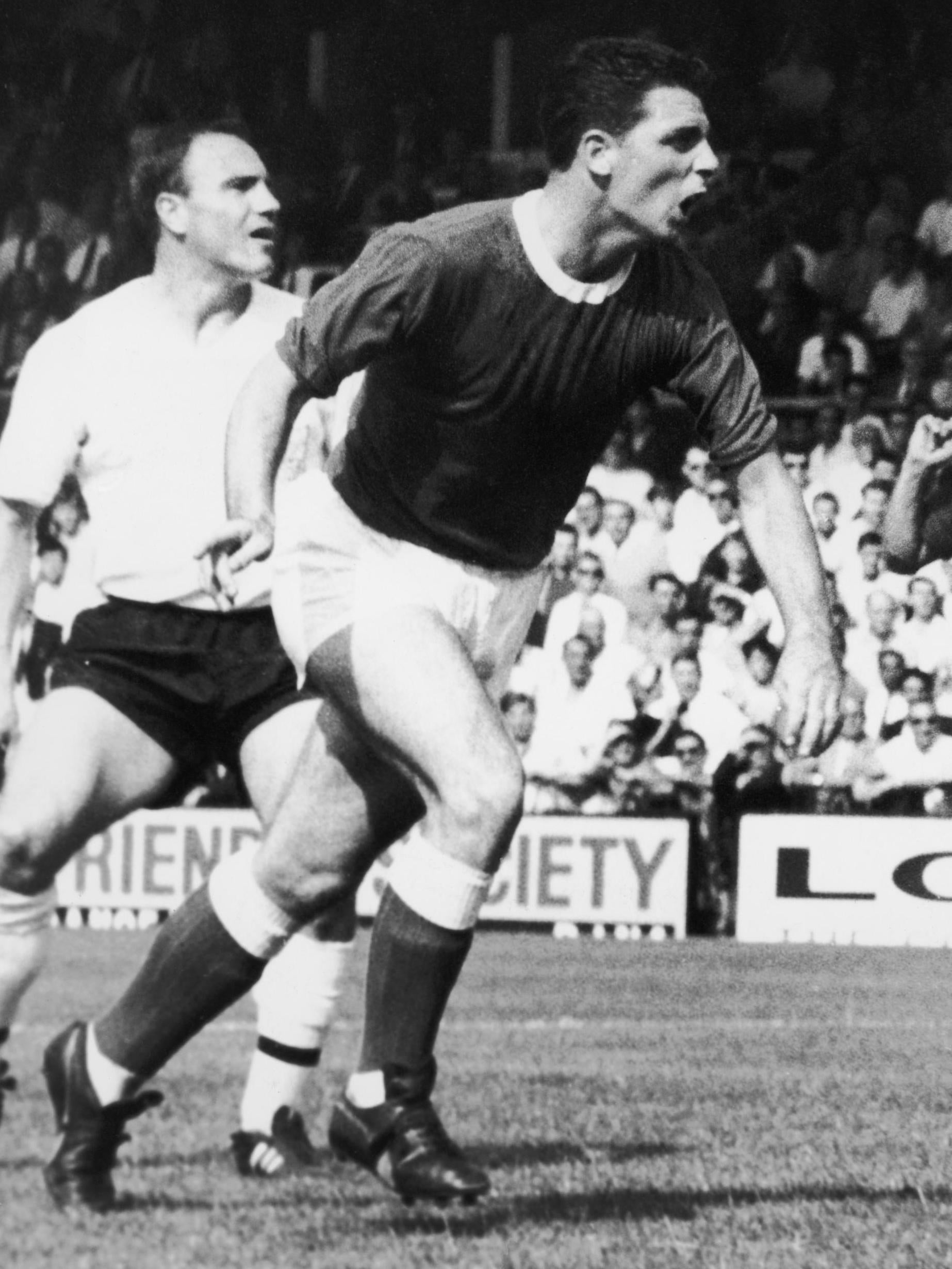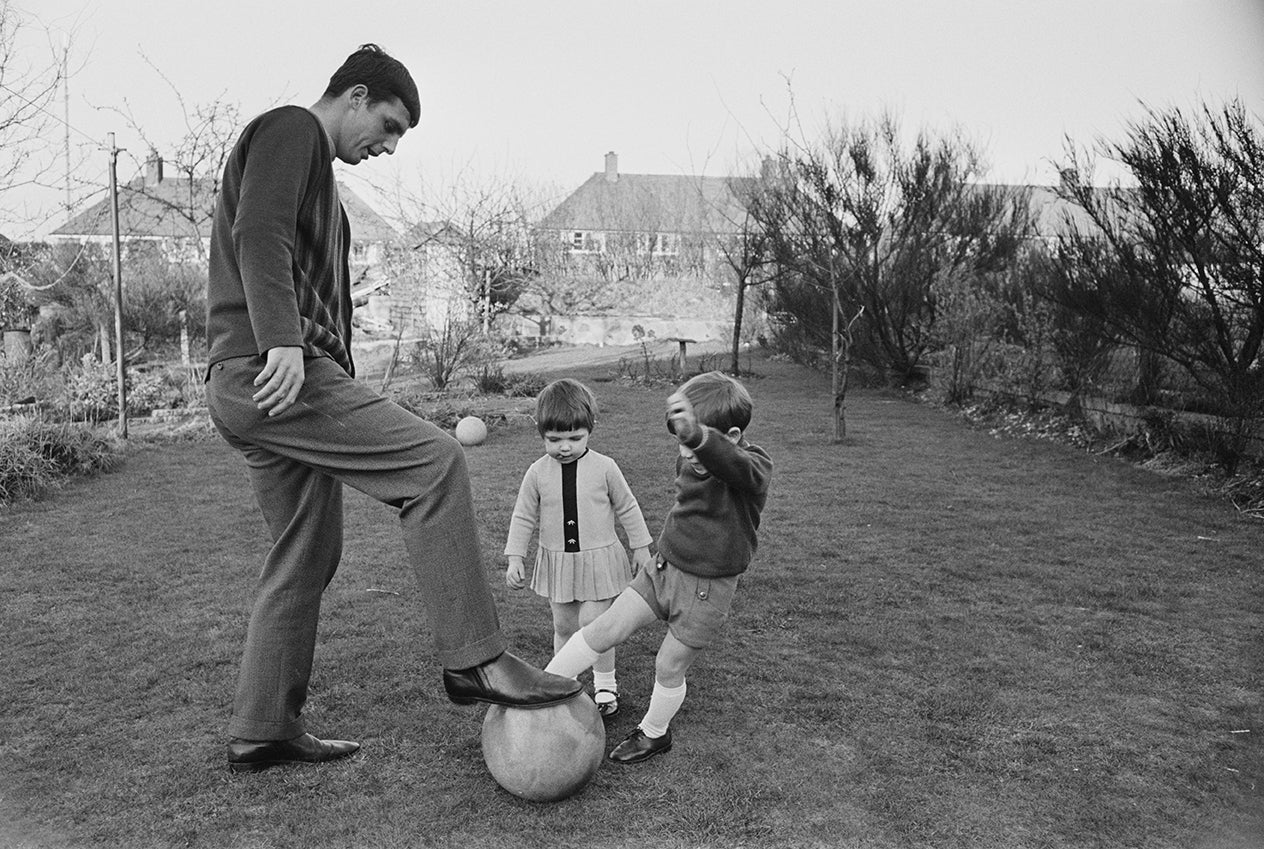Fred Pickering: Prolific Blackburn and Everton striker who scored a hat-trick on his England debut
The ‘Boomer’ netted 168 goals in 354 league appearances, but was denied the chance to represent the Three Lions at the 1966 World Cup

Your support helps us to tell the story
From reproductive rights to climate change to Big Tech, The Independent is on the ground when the story is developing. Whether it's investigating the financials of Elon Musk's pro-Trump PAC or producing our latest documentary, 'The A Word', which shines a light on the American women fighting for reproductive rights, we know how important it is to parse out the facts from the messaging.
At such a critical moment in US history, we need reporters on the ground. Your donation allows us to keep sending journalists to speak to both sides of the story.
The Independent is trusted by Americans across the entire political spectrum. And unlike many other quality news outlets, we choose not to lock Americans out of our reporting and analysis with paywalls. We believe quality journalism should be available to everyone, paid for by those who can afford it.
Your support makes all the difference.Fred Pickering regarded English football’s annus mirabilis of 1966 as the year that an injury cost him the chance of taking the role which Geoff Hurst famously played in England’s World Cup triumph, and signalled a downturn in his career as one of Everton’s great goalscorers.
Alf Ramsey, the England manager, selected Pickering in his provisional 40-man squad for the global extravaganza. The barnstorming centre-forward – scorer of a hat-trick on his debut for both Everton and England – was vying with Hurst, Roger Hunt and Johnny Byrne to play alongside Jimmy Greaves and Bobby Charlton.
His powerful shooting had earned him the nickname “Boomer”. And a magnificent volley in Everton’s 1966 FA Cup quarter-final victory over Manchester City meant he had scored in every round that year. Then, at the most inopportune time, Pickering suffered a cartilage problem and sat out the semi-final defeat of Manchester United.
Despite declaring himself fit for the final at Wembley, he was deemed too great a gamble (no substitutes were allowed) by Everton manager Harry Catterick. His replacement, Mike Trebilcock, scored twice as Sheffield Wednesday were beaten 3-2.
When Ramsey trimmed his 40, prior to naming his final 22, Pickering was surplus to requirements. Hurst, who made his international debut barely four months before the tournament, seized his opportunity, scored a hat-trick in the final and was eventually knighted.
Pickering had signed for his hometown team, Blackburn Rovers, after leaving school. He was then a defender and led Rovers from left-back when they overcame West Ham – including Geoff Hurst and the future England World Cup-winning captain Bobby Moore – to win the FA Youth Cup in 1959. Manager Jack Marshall converted him to a striker with startling results.

In two spells with Blackburn, Pickering netted 61 times in 134 matches, forming a partnership with Andy McEvoy which was instrumental in putting Blackburn in contention for the Football League title in 1963-64. To dismay in the East Lancashire town, he was sold to Everton in March 1964 for £85,000, then a record for a transfer between British clubs.
In his first Everton appearance he scored three times in a 6-1 rout of Nottingham Forest. However, nine goals in as many games could not stop rivals Liverpool becoming champions while Pickering’s new club finished third and Blackburn seventh.
Ramsey promptly picked him for England and he claimed another three goals in the 10-0 win over the United States in New York. He was on the mark in two further internationals in 1964 yet never wore the Three Lions again.
At Everton he became a feared No 9, his brutal shooting and aerial prowess complemented by neat footwork. His first full season there, 1964-65, delivered 37 goals in 51 competitive games. But with Joe Royle emerging, the 1966 misfortune which denied Pickering a potential double date at Wembley meant his best days at Goodison Park were behind him.

The following year, after 70 goals in 115 games for Everton, he was offloaded to Birmingham City for £50,000.
The high point of his Midland sojourn was the header which turfed Chelsea out of the FA Cup at the sixth-round stage in 1968. In the semi-final Pickering struck the West Bromwich woodwork twice but again failed to reach the Twin Towers.
After joining Blackpool, he scored yet another treble in April 1970 – at local rivals Preston – to secure promotion to the top flight and effectively relegate the losers. Pickering returned briefly to Blackburn, before retiring with 168 goals from 354 league games. He later worked as a fork-lift truck driver. After his death, at the age of 78, fellow Blackburn and England player Bryan Douglas hailed him as “a great player… for me just as good as Alan Shearer.”
Frederick Pickering, footballer, born 19 January 1941, died 9 February 2019
Join our commenting forum
Join thought-provoking conversations, follow other Independent readers and see their replies
Comments